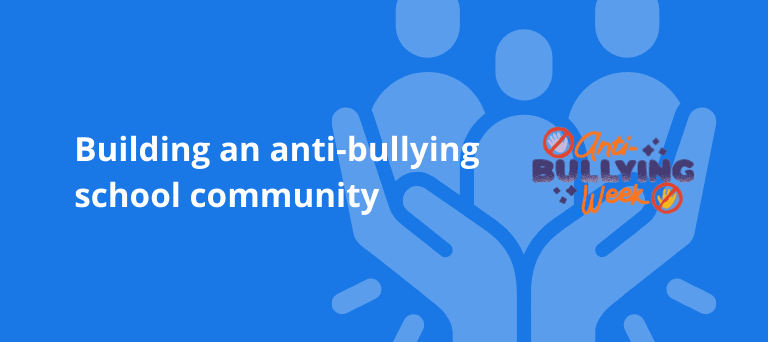Effective Children's Safeguarding During Covid-19 Webinar: Key Insights
Andrew King
5
min read
On the 2nd of March 2021, Zen Educate hosted a webinar on Effective Children's Safeguarding During Covid-19. Hosted by Helen Woodward, Former Head of School Improvement for the DfE, the webinar explored:
Current children’s safeguarding concerns and how to help ensure the best outcomes
The most significant protective factors amongst children and young people
Lessons learned from serious case reviews
How to manage emotional responses
Helen was joined by a special guest panel for the webinar:
Cathy Graham, Headteacher & Education Representative on Trafford's Education Improvement Board
Rafik Iddin, Independent Safeguarding & Social Work Consultant
Hayley Cameron, Education Safeguarding Manager for Cognus Limited, who provide education services for children and young people in the London Borough of Sutton
We hope you find this summary useful.
What are the most important considerations for school leaders prioritising children's safety and wellbeing at the moment?
“A lot of it is knowing your families, and also keeping really creative lines of communication open to people.”
Cathy Graham
Summary: Many children have been home learning and away from school for weeks during the pandemic, so the context for safeguarding has changed. Not only did all classroom communication move online, but family lives were disrupted by unemployment, mental health challenges, and in some cases bereavement. COVID-19 regulations have also meant many organisations that schools ordinarily work with when safeguarding children – such as health visiting teams – have been unable to function as normal. While children’s safety is of the same paramount importance to schools as it was before the pandemic, the actions schools take to ensure this have needed to change.
Key insights: “We're all aware of our vulnerable children, but the pandemic has impacted on families in such a range of different ways”, said Hayley. This has meant vulnerable children have needed a higher level of support, which in turn has created pressure on staffing resources.
Cathy mentioned reduced home visits from health visiting teams presented a real challenge to their school. In the understandable absence of home visits, the school decided to implement doorstep visits to children to check in on their wellbeing.
Opportunities: In order to provide the higher level of support needed by children who have been directly affected by the pandemic, regular contact with both children and their families is important. Cathy emphasised the importance of “having regular check-ins and creating the opportunities for children and their families to really open up and feel safe in reaching out. Some are more comfortable with doing this and others, so it really is up to us to reach out.”
In addition to doorstep visits, Cathy spoke of how their school had been sending links to both students and parents, via Facebook and email, signposting them to local support. This way, “if they don’t feel they can say something directly to us, they do have somewhere else that they can tap into”, Cathy explained.
What are the most significant protective factors for children and young people?
“I always think of the author Alice Walker, who said ‘children need a witness’. And that can be one person – could be a teacher, could be a teaching assistant, or a social worker – somebody they feel they can talk to.”
Rafik iddin
Summary: There are many protective factors for children and young people. Rafik talked about the importance of: being aware of lived experiences, ensuring children and young people have at least one trusted adult they can confide in, and ensuring there are staff around who are alert to the changing demeanors of children which may indicate concerns.
Key insights: “Safeguarding is not the responsibility of just one person”, Rafik explained. “It's everybody's responsibility. This was a key message from the Laming inquiry into the death of Victoria Climbié. This case was tragic in so many ways. Victoria got the best of responses from an unregistered childminder and a taxi driver, who noticed particular aspects of her presentation, of her demeanour, her injuries, and they wanted to do something more.”
Opportunities: Rafik emphasised whilst recognising the outcome was tragic, we can learn about tenacity from the childminder and taxi driver in the case of Victoria Climbié: “Sometimes there’s one particular person who says ‘you know, I'm not going home until I've seen this child. I'm going to keep phoning until I get the right response.’ So the issue of tenacity is really critical.”
If you have ongoing concerns about children that remain unresolved, there are several things you can do and take responsibility for. Rafik explained it’s crucial to uphold a consistent record-keeping system, have a strong understanding of your local escalation processes and arrangements (knowing who your representative is on the Local Safeguarding Children Board and what collaborative arrangements exist between schools, police, social care and health), and to maintain communication with the appropriate people. He also brought up the usefulness of a ‘PACE’ system in approaching unresolved concerns: Probe, Alert, Challenge, Emergency, as detailed below.
Reporting & raising concerns - PACE
(Source: Black Box Thinking - Matthew Syed)
Probe your own knowledge / information. Gather it and get it into a succinct and clear format.
Alert - raise your specific concerns.
Challenge if your concerns are not fully addressed or if further concerning evidence emerges. Be aware of changes and increased risk.
Emergency - What to do if you have specific and immediate concerns about the safety and welfare of a child or young perso
How can we manage our emotional responses to communicate properly and make the right decisions?
“Things don't always go to plan, but it's about being able to reflect and learn from them and recognising how stress and anxiety can impair your ability to make informed decisions.”
Hayley Cameron
Summary: Children's safeguarding engages us at an emotional level - and so it should. But how can we manage our internal emotional response in ways that help us communicate effectively and also help make our decision-making robust? Hayley spoke of how stress and anxiety can limit our decision-making, and Cathy detailed how recruiting a strong, experienced safeguarding team within schools can help to alleviate problems of this nature.
Key insights: Hayley explained that “if you don't give yourself space, and you don't have opportunities to talk through, and really think ‘what went wrong?’, that's when the issues can arise.” Hayley also spoke about reflective supervision, and how it can benefit particular safeguarding workers to have people around to speak to, but as Cathy pointed out, some members of school leadership teams can struggle to find this: “Recently, we've had to deal with quite a horrific case. The social workers have regular supervision with their managers to support them with the case, and the school nurse has support through their health team, and it sort of left me questioning ‘well, who does that for me as a Headteacher?’”
Opportunities: For Cathy, having a Safeguarding Governor with a great deal of safeguarding experience has provided her with the extra support needed to make informed decisions: “I'm very lucky because one of my Chairs of Governors was in the Child Protection Unit for the police, and she's our Safeguarding Governor. I find her very helpful as a sounding board for things, but not everybody has someone in their governing body with that sort of experience.” As Hayley summarised, “It's about involving the right people."
You can watch the webinar in its entirety here.
We’d like to thank Hayley, Cathy, Rafik and Helen once again for their time and insight on this crucially important and sensitive issue.
If you have any feedback on the webinar or anything else, please get in touch via our Twitter page and we’ll get back to you. You might be interested in our children’s safeguarding policy or signing up to post an open vacancy for free.
Search blog posts …
Search







